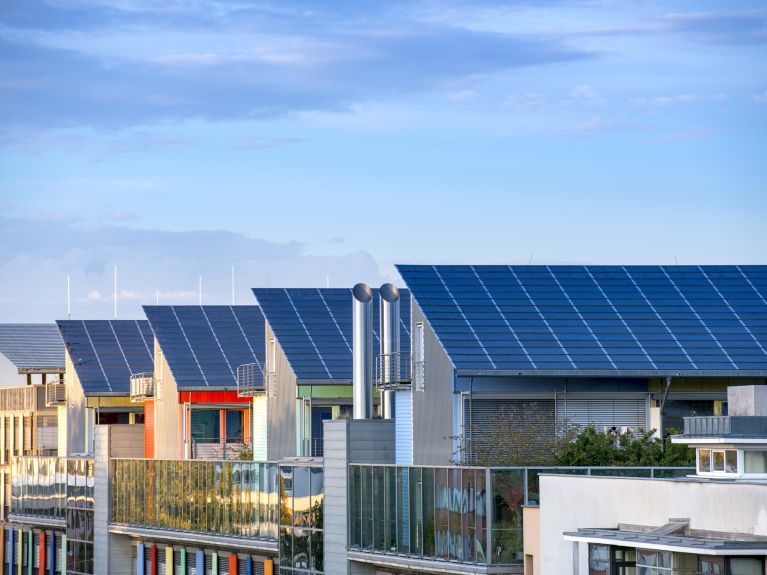Will we soon be buying electricity directly from a neighbour’s roof?
How blockchain technology works and how it could change the energy industry.

Germany. Decentralization, digitization and decarbonisation: the energy industry is facing major challenges. The number of producers is increasing and putting the established relationship between energy producers and consumers into question. Because why should small producers not sell their electricity from a solar system on the roof directly to the consumer, much like at the weekly market? Although this is already possible on a small scale, it is bound up with considerable effort in billing. In the current discussion, therefore, the magic word “blockchain” is heard more and more frequently.
How does blockchain work?
Blockchain is a decentralized, autonomous and digital payment system. It allows private persons to conduct transactions without intermediaries. The blockchain acts as a kind of public "cash book" in which transactions are visible to all parties. Since the transactions are collected and then packed together, we speak of a constantly growing chain of blocks of data (blocks). This is how it is described in the study “Blockchain in the Energy Industry” by the Federal Association of the Energy and Water Industry (BDEW). The term originated in the field of cryptocurrencies.
Dieses YouTube-Video kann in einem neuen Tab abgespielt werden
YouTube öffnenThird party content
We use YouTube to embed content that may collect data about your activity. Please review the details and accept the service to see this content.
Open consent formWhat can blockchain do in the energy industry?
The use of blockchain techniques could enable consumers in the near future to buy electricity directly from the cheapest producer. When the sun shines, the energy comes directly from the solar system in the neighbourhood; when the wind blows, it comes from the North Sea. To make such small-scale transactions worthwhile, the transaction costs must be kept as low as possible. That's where blockchain technology comes in.
How far advanced is blockchain technology?
Blockchain technology fits in well with an increasingly decentralized energy industry. According to experts, blockchain could even make traditional suppliers superfluous. Regulatory issues, however, would still have to be resolved before use on a large scale. Who finances the infrastructure, that is, the net? Who is responsible for security of supply? Here political policy is needed. That in turn could be a great opportunity for suppliers - if they develop into a system service providers.
Livestream: Berlin Energy Transition Dialogue (BETD), 17 - 18 April 2018
Dieses YouTube-Video kann in einem neuen Tab abgespielt werden
YouTube öffnenThird party content
We use YouTube to embed content that may collect data about your activity. Please review the details and accept the service to see this content.
Open consent form

